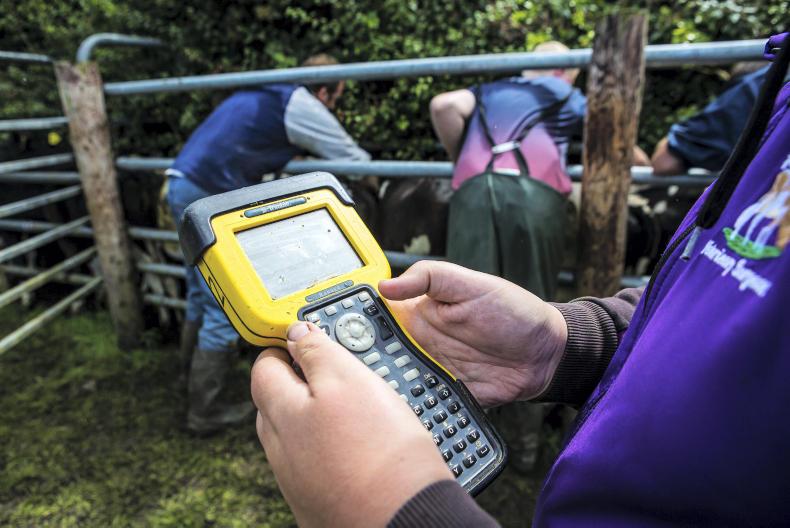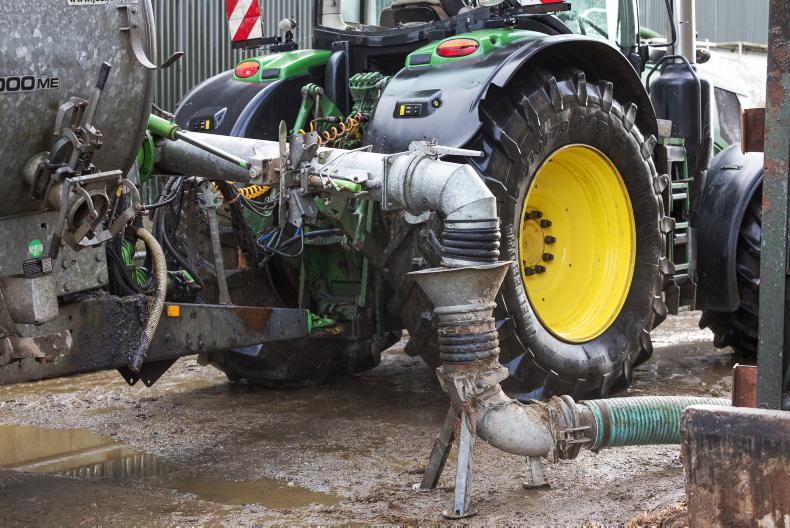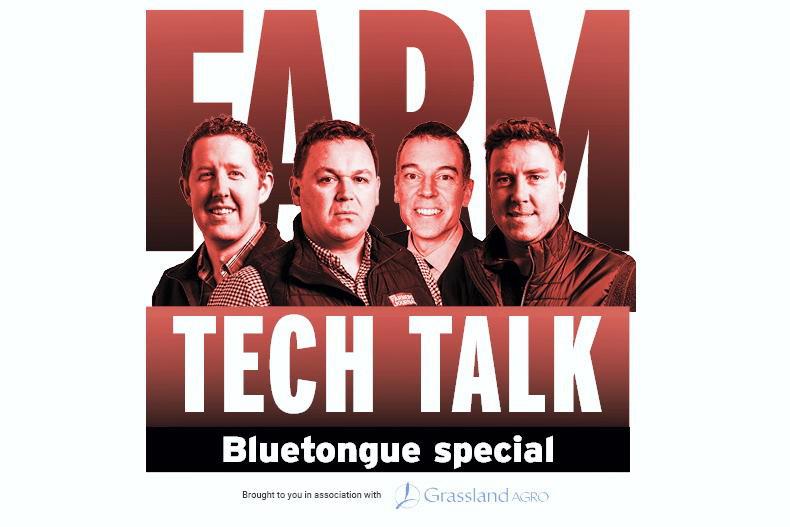There has been an outpouring of anger and frustration among farmers and farm organisations, following the issuing of TB risk letters by the Department of Agriculture.
All cattle herds in the country have received their own individualised TB risk statement, which details the farm’s risk category and high risk animals.
Over 20,000 herds have been placed in the high risk category, due to having a TB breakdown within the last three years. The Department has been accused of “blacklisting” these farmers and devaluing their animals by IFA animal health chair Pat Farrell.
“This raises very serious issues for these farmers, who through no fault of their own, have had TB outbreaks. It will have implications for selling cattle and calves from their farms,” he said.
Farmers were being penalised for the Department’s own failings and the letters should be withdrawn immediately, Farrell stated.
He warned that farmers’ financial contribution to the programme of more than €35m annually was under threat unless the impact on their livelihoods was recognised.
The Irish Cattle and Sheep Farmers Association (ICSA) flagged major concerns for farmers who sold cattle through marts. The letters list animals returned unsold from marts as high risk. Farmers are advised that they cannot consider their herd a closed herd if there are unsold animals present.
ICSA animal health chair Hugh Farrell branded it an assault on the mart trade. He said there was now a state of panic and confusion over advice to high-risk cull animals.
“This letter has seriously set back the prospect of a collaborative approach to the TB programme and will be met with farmer fury,” he said.
Irish Creamery and Milk Suppliers Association (ICMSA) vice-president Lorcan McCabe said the letters did nothing to deal with issues farmers wanted action on. “Farmers want to see the root causes of TB in their area dealt with, and secondly, want to be treated fairly and reasonably in terms of their ability to farm, with real financial losses recognised and compensated,” McCabe said.
The loss of momentum and energy around eradication was now notable, he said.
Read more
Farmer Writes: we know our TB history better than any report
What to expect in your herd’s TB risk profile
There has been an outpouring of anger and frustration among farmers and farm organisations, following the issuing of TB risk letters by the Department of Agriculture.
All cattle herds in the country have received their own individualised TB risk statement, which details the farm’s risk category and high risk animals.
Over 20,000 herds have been placed in the high risk category, due to having a TB breakdown within the last three years. The Department has been accused of “blacklisting” these farmers and devaluing their animals by IFA animal health chair Pat Farrell.
“This raises very serious issues for these farmers, who through no fault of their own, have had TB outbreaks. It will have implications for selling cattle and calves from their farms,” he said.
Farmers were being penalised for the Department’s own failings and the letters should be withdrawn immediately, Farrell stated.
He warned that farmers’ financial contribution to the programme of more than €35m annually was under threat unless the impact on their livelihoods was recognised.
The Irish Cattle and Sheep Farmers Association (ICSA) flagged major concerns for farmers who sold cattle through marts. The letters list animals returned unsold from marts as high risk. Farmers are advised that they cannot consider their herd a closed herd if there are unsold animals present.
ICSA animal health chair Hugh Farrell branded it an assault on the mart trade. He said there was now a state of panic and confusion over advice to high-risk cull animals.
“This letter has seriously set back the prospect of a collaborative approach to the TB programme and will be met with farmer fury,” he said.
Irish Creamery and Milk Suppliers Association (ICMSA) vice-president Lorcan McCabe said the letters did nothing to deal with issues farmers wanted action on. “Farmers want to see the root causes of TB in their area dealt with, and secondly, want to be treated fairly and reasonably in terms of their ability to farm, with real financial losses recognised and compensated,” McCabe said.
The loss of momentum and energy around eradication was now notable, he said.
Read more
Farmer Writes: we know our TB history better than any report
What to expect in your herd’s TB risk profile









SHARING OPTIONS